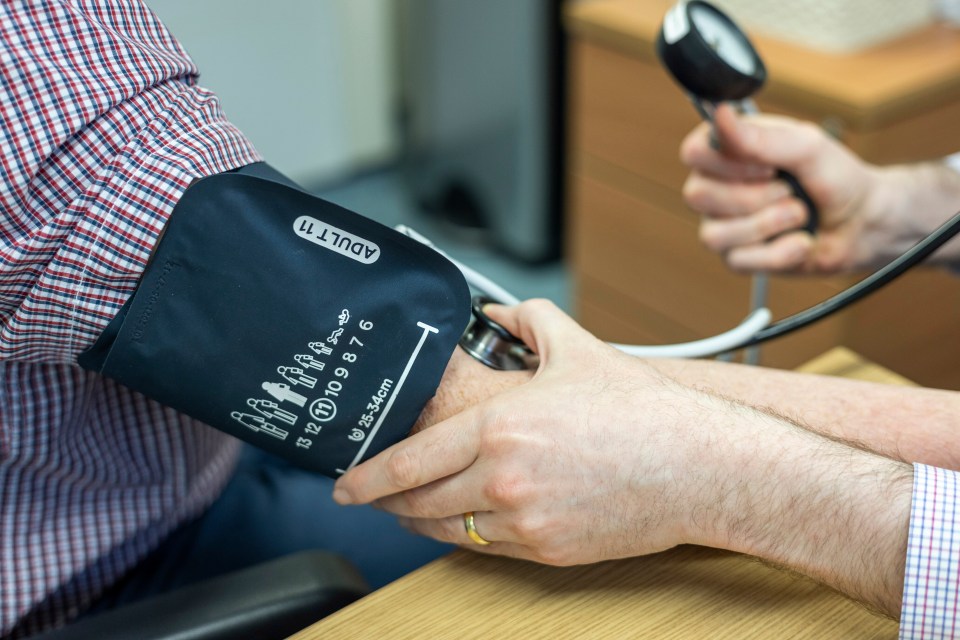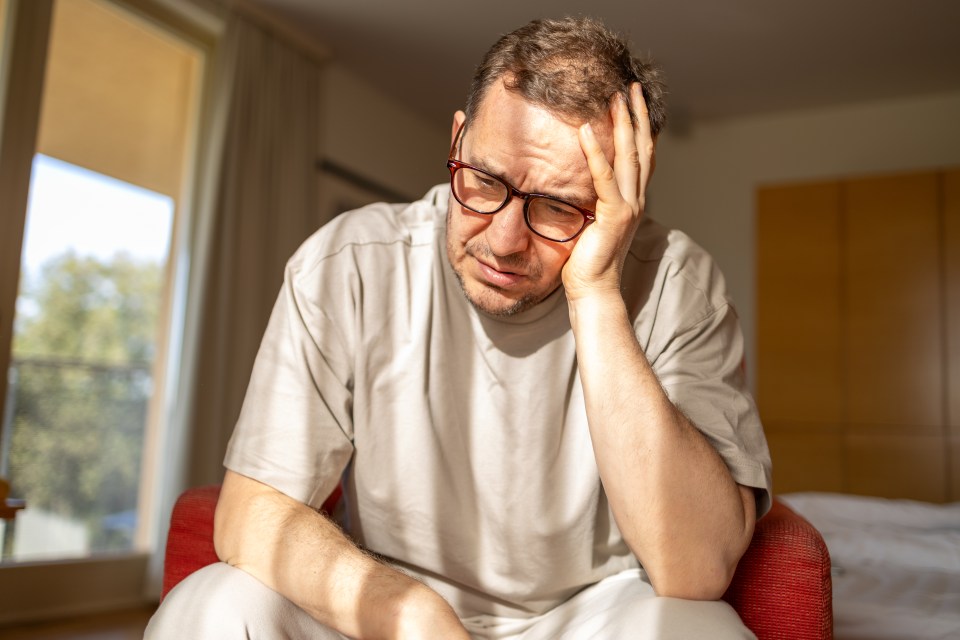NEARLY half of middle-aged Brits are unaware they’re living with a silent killer condition and may be among the “missing millions” at risk of complications like heart attacks.
The best way to find out if you have the condition is with a “simple, quick check”.
A poll of 2,000 40 to 55-year-olds by the charity Blood Pressure UK found 43 per cent do not know their blood pressure.
Having high blood pressure can cause serious health conditions, such as heart attack, stroke, kidney disease, vision problems, and vascular dementia by putting strain on the heart, blood vessels, brain, kidneys and eyes.
Called the ‘silent killer’, it often shows no symptoms, making it difficult to detect until it causes serious damage.
High blood pressure is best identified through readings taken with an inflatable cuff wrapped round the arm, with normal results generally between 90/60mmHg and 120/80mmHg.
Read more on blood pressure
More than a quarter of Brits are thought to have high blood pressure.
Blood Pressure UK estimates that five million people have it but are unaware.
Charity chief Dr Pauline Swift said: “These findings are deeply concerning.
“High blood pressure is a silent killer.
“It often has no symptoms, yet it’s responsible for more deaths than any other preventable condition in the UK.
“We urge everyone, especially those over 40, to take a simple, quick blood pressure check – at home, in a pharmacy, or with their GP.”
CEO Phil Pyatt added: “A quick check and one small lifestyle change could save your life.”
High blood pressure is very common and is usually caused by family genetics, old age, an unhealthy salty diet, too much smoking and drinking, and not exercising enough.
Most patients can control it with medications and healthier living.
Symptoms of high blood pressure
While the condition generally does not usually cause any symptoms, in some cases it can lead to:
- Headaches
- Blurred vision
- Chest pain
If you often have headaches or blurred vision, and you have chest pain that comes and goes, you should get help from NHS 111.
For sudden pain or discomfort in the chest that does not go away, pain that spreads to your left or right arm, or your neck, jaw, stomach or back, or chest pain accompanied with feeling sweaty, sick, light headed or short of breath, call 999.
These could be signs of a heart attack, which requires immediate treatment in hospital.
How to lower blood pressure
Healthy lifestyle changes can help lower your blood pressure.
The NHS recommends eating a healthy, balanced diet, exercising regularly – aiming to do at least 150 minutes of exercise a week – and losing weight if you’re overweight.
Also avoid eating too much salt, drinking too much alcohol and caffeine, and do not smoke.
What happens if you have high blood pressure?
A diagnosis typically requires a plan for monitoring and treatment to make sure the high readings are consistent, not just a one-off.
Adopting lifestyle changes is a crucial part of blood pressure management, but your doctor will likely also prescribe one or more medications (antihypertensives) to help control your reading.
There are lots of different medicines for high blood pressure.
The medicine recommended for you depends on things like how high your blood pressure is, your age and your ethnicity.
Most blood pressure medicines are taken as tables once a day.
High blood pressure management is typically a lifelong process requiring ongoing monitoring and adherence to your treatment plan.
Source: NHS














